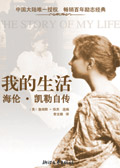wild wales-第23部分
按键盘上方向键 ← 或 → 可快速上下翻页,按键盘上的 Enter 键可回到本书目录页,按键盘上方向键 ↑ 可回到本页顶部!
————未阅读完?加入书签已便下次继续阅读!
Baptists I don't believe a word of it; he was turned out of the
connection; and then went about the country saying he left it。 No
Baptist connection would ever have a writer of Interludes in it;
not Twm o'r Nant himself; unless he left his ales and Interludes
and wanton hussies; for the three things are sure to go together。
You say he went over to the Church of Rome; of course he did; if
the Church of England were not at hand to receive him; where should
he go but to Rome? No respectable church like the Methodist or the
Independent would have received him。 There are only two churches
in the world that will take in anybody without asking questions;
and will never turn them out however bad they may behave; the one
is the Church of Rome; and the other the Church of Canterbury; and
if you look into the matter you will find that every rogue; rascal
and hanged person since the world began; has belonged to one or
other of those communions。〃
In the evening I took a walk with my wife and daughter past the
Plas Newydd。 Coming to the little mill called the Melyn Bac; at
the bottom of the gorge; we went into the yard to observe the
water…wheel。 We found that it was turned by a very little water;
which was conveyed to it by artificial means。 Seeing the miller's
man; a short dusty figure; standing in the yard; I entered into
conversation with him; and found to my great surprise that he had a
considerable acquaintance with the ancient language。 On my
repeating to him verses from Taliesin he understood them; and to
show me that he did; translated some of the lines into English。
Two or three respectable…looking lads; probably the miller's sons;
came out; and listened to us。 One of them said we were both good
Welshmen。 After a little time the man asked me if I had heard of
Huw Morris; I told him that I was well acquainted with his
writings; and enquired whether the place in which he had lived was
not somewhere in the neighbourhood。 He said it was; and that it
was over the mountains not far from Llan Sanfraid。 I asked whether
it was not called Pont y Meibion。 He answered in the affirmative;
and added that he had himself been there; and had sat in Huw
Morris's stone chair which was still to be seen by the road's side。
I told him that I hoped to visit the place in a few days。 He
replied that I should be quite right in doing so; and that no one
should come to these parts without visiting Pont y Meibion; for
that Huw Morris was one of the columns of the Cumry。
〃What a difference;〃 said I to my wife; after we had departed;
〃between a Welshman and an Englishman of the lower class。 What
would a Suffolk miller's swain have said if I had repeated to him
verses out of Beowulf or even Chaucer; and had asked him about the
residence of Skelton。
CHAPTER XX
Huw Morris … Immortal Elegy … The Valley of Ceiriog … Tangled
Wilderness … Perplexity … Chair of Huw Morris … The Walking Stick …
Huw's Descendant … Pont y Meibion。
Two days after the last adventure I set off; over the Berwyn; to
visit the birth…place of Huw Morris under the guidance of John
Jones; who was well acquainted with the spot。
Huw Morus or Morris; was born in the year 1622 on the banks of the
Ceiriog。 His life was a long one; for he died at the age of
eighty…four; after living in six reigns。 He was the second son of
a farmer; and was apprenticed to a tanner; with whom; however; he
did not stay till the expiration of the term of his apprenticeship;
for not liking the tanning art; he speedily returned to the house
of his father; whom he assisted in husbandry till death called the
old man away。 He then assisted his elder brother; and on his elder
brother's death; lived with his son。 He did not distinguish
himself as a husbandman; and appears never to have been fond of
manual labour。 At an early period; however; he applied himself
most assiduously to poetry; and before he had attained the age of
thirty was celebrated; throughout Wales; as the best poet of his
time。 When the war broke out between Charles and his parliament;
Huw espoused the part of the king; not as soldier; for he appears
to have liked fighting little better than tanning or husbandry; but
as a poet; and probably did the king more service in that capacity
than he would if he had raised him a troop of horse; or a regiment
of foot; for he wrote songs breathing loyalty to Charles; and
fraught with pungent satire against his foes; which ran like wild…
fire through Wales; and had a great influence on the minds of the
people。 Even when the royal cause was lost in the field; he still
carried on a poetical war against the successful party; but not so
openly as before; dealing chiefly in allegories; which; however;
were easy to be understood。 Strange to say the Independents; when
they had the upper hand; never interfered with him though they
persecuted certain Royalist poets of far inferior note。 On the
accession of Charles the Second he celebrated the event by a most
singular piece called the Lamentation of Oliver's men; in which he
assails the Roundheads with the most bitter irony。 He was loyal to
James the Second; till that monarch attempted to overthrow the
Church of England; when Huw; much to his credit; turned against
him; and wrote songs in the interest of the glorious Prince of
Orange。 He died in the reign of good Queen Anne。 In his youth his
conduct was rather dissolute; but irreproachable and almost holy in
his latter days … a kind of halo surrounded his old brow。 It was
the custom in those days in North Wales for the congregation to
leave the church in a row with the clergyman at their head; but so
great was the estimation in which old Huw was universally held; for
the purity of his life and his poetical gift; that the clergyman of
the parish abandoning his claim to precedence; always insisted on
the good and inspired old man's leading the file; himself following
immediately in his rear。 Huw wrote on various subjects; mostly in
common and easily understood measures。 He was great in satire;
great in humour; but when he pleased could be greater in pathos
than in either; for his best piece is an elegy on Barbara
Middleton; the sweetest song of the kind ever written。 From his
being born on the banks of the brook Ceiriog; and from the flowing
melody of his awen or muse; his countrymen were in the habit of
calling him Eos Ceiriog; or the Ceiriog Nightingale。
So John Jones and myself set off across the Berwyn to visit the
birthplace of the great poet Huw Morris。 We ascended the mountain
by Allt Paddy。 The morning was lowering and before we had half got
to the top it began to rain。 John Jones was in his usual good
spirits。 Suddenly taking me by the arm he told me to look to the
right across the gorge to a white house; which he pointed out。
〃What is there in that house?〃 said I。
〃An aunt of mine lives there;〃 said he。
Having frequently heard him call old women his aunts; I said;
〃Every poor old woman in the neighbourhood seems to be your aunt。〃
〃This is no poor old woman;〃 said he; 〃she is cyfoethawg iawn; and
only last week she sent me and my family a pound of bacon; which
would have cost me sixpence…halfpenny; and about a month ago a
measure of wheat。〃
We passed over the top of the mountain; and descending the other
side reached Llansanfraid; and stopped at the public…house where we
had been before; and called for two glasses of ale。 Whilst
drinking our ale Jones asked some questions about Huw Morris of the
woman who served us; she said that he was a famous poet; and that
people of his blood were yet living upon the lands which had
belonged to him at Pont y Meibion。 Jones told her that his
companion; the gwr boneddig; meaning myself; had come in order to
see the birth…place of Huw Morris; and that I was well acquainted
with his works; having gotten them by heart in Lloegr; when a boy。
The woman said that nothing would give her greater pleasure than to
hear a Sais recite poetry of Huw Morris; whereupon I recited a
number of his lines addressed to the Gof Du; or blacksmith。 The
woman held up her hands; and a carter who was in the kitchen
somewhat the worse for liquor; shouted applause。 After asking a
few questions as to the road we were to take; we left the house;
and in a little time entered the valley of Ceiriog。 The valley is
very narrow; huge hills overhanging it on both sides; those on the
east side lumpy and bare; those on the west precipitous; and
partially clad with wood; the torrent Ceiriog runs down it;
clinging to the east side; the road is tolerably good; and is to
the west of the stream。 Shortly after we had entered the gorge; we
passed by a small farm…house on our right hand; with a hawthorn
hedge before it; upon which seems to stand a peacock; curiously cut
out of thorn。 Passing on we came to a place called Pandy uchaf; or
the higher Fulling mill。 The place so called is a collection of
ruinous houses; which put me in mind of the Fulling mills mentioned
in 〃Don Quixote。〃 It is called the Pandy because there was
formerly a fulling mill here; said to have been the first
established in Wales; which is still to be seen; but which is no
longer worked。 Just above the old mill there is a meeting of
streams; the Tarw from the west rolls down a dark valley into the
Ceiriog。
At the entrance of this valley and just before you reach the Pandy;
which it nearly overhangs; is an enormous crag。 After I had looked
at the place for some time with considerable interest we proceeded
towards the south; and in about twenty minutes reached a neat kind
of house; on our right hand; which John Jones told me stood on the
ground of Huw Morris。 Telling me to wait; he went to the house;
and asked some questions。 After a little time I followed him and
found him discoursing at the door with a stout dame about fifty…
five years of age; and a stout buxom damsel of about seventeen;
very short of stature。
〃This is the gentleman〃 said he; 〃who wishes to see anything there
may be here connected with
![[网王同人]colorless wind封面](http://www.baxi2.com/cover/noimg.jpg)



